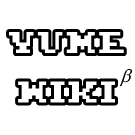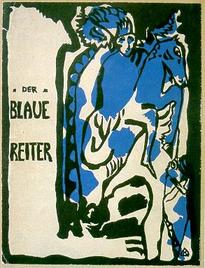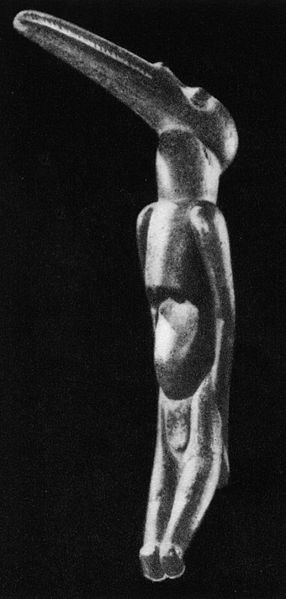>Mt.kiki |
|
| (13 intermediate revisions by 6 users not shown) |
| Line 1: |
Line 1: |
| [[File:Muralworld.jpg|link=http://yumenikki.wikia.com/wiki/Mural_World|frame|left|Mural_World(Pinko_Door)]] | | ==Communism== |
| | [[File:YN Mural World.png|thumb|upright=1.0|right|Mural World and its pink door]] |
| | [[wikipedia:Pinko|Pinko]] is a pejorative coined in America in 1925, originally to describe a person regarded as being sympathetic to [[wikipedia:Communism|communism]]. This could be referenced by the pink color of the door. |
|
| |
|
| | Some of the murals may be interpreted as depicting figures holding sickles. |
|
| |
|
| | <div style="clear:both"></div> |
|
| |
|
| | ==Der Blaue Reiter== |
| | [[File:BlaueReiter.jpg|thumb|right|''The Blue Rider'']] |
|
| |
|
| | ''[[wikipedia:Der Blaue Reiter|Der Blaue Reiter]]'' (''The Blue Rider'') was a group of artists from the [[wikipedia:Neue Künstlervereinigung München|Neue Künstlervereinigung München]] (N.K.V.M: New Artists' Association Munich. The group was founded by a number of Russian emigrants, including [[wikipedia:Wassily Kandinsky|Wassily Kandinsky]], [[wikipedia:Alexej von Jawlensky|Alexej von Jawlensky]], [[wikipedia:Marianne von Werefkin|Marianne von Werefkin]], and native German artists, such as [[wikipedia:Franz Marc|Franz Marc]], [[wikipedia:August Macke|August Macke]] and [[wikipedia:Gabriele Münter|Gabriele Münter]]. Der Blaue Reiter was a movement lasting from 1911 to 1914, fundamental to [[wikipedia:Expressionism|Expressionism]], along with [[wikipedia:Die Brücke|Die Brücke]] which was founded in 1905. |
|
| |
|
| | ==Red Flag== |
| | [[File:Red flag waving svg.png|thumb|right|In politics, a red flag is a symbol of Socialism, or Communism, or sometimes left-wing politics in general.]] |
|
| |
|
| | [http://ja.wikipedia.org/wiki/%E9%9D%92%E9%A8%8E%E5%A3%AB#.E3.83.8A.E3.83.81.E3.82.B9.E3.81.AB.E3.82.88.E3.82.8B.E5.BC.BE.E5.9C.A7 7.3 ナチスによる弾圧] |
|
| |
|
| | 現代美術、特に19世紀半ば以降の芸術を理解せず毛嫌いした[http://ja.wikipedia.org/wiki/%E3%83%8A%E3%83%81%E3%82%B9 ナチス]は、それらを「[http://ja.wikipedia.org/wiki/%E9%80%80%E5%BB%83%E8%8A%B8%E8%A1%93 頽廃芸術]」であると一方的にみなし、美術館などから作品を没収し芸術家に制作を禁じるなどして強力に弾圧した。[http://ja.wikipedia.org/wiki/%E3%83%89%E3%82%A4%E3%83%84%E8%A1%A8%E7%8F%BE%E4%B8%BB%E7%BE%A9 ドイツ表現主義]の作品もそのやり玉にあげられ、青騎士に属していた芸術家たちも例外ではなかった。 |
|
| |
|
| | [[wikipedia:Red flag|Red flag]] |
| | Contemporary art and especially the [[wikipedia:Nazi Party|Nazis]] that understood and had an instinctive dislike of the art on and after the middle of the 19th century oppressed powerfully by considering that they are "[[wikipedia:Degenerate art|degenerate art]]" on a target on the other hand, confiscating a work from an art museum etc., and forbidding an artist work. |
|
| |
|
| | Neither the works of the [[wikipedia:German Expressionism|German Expressionism]] nor the artists of those whom it made a victim of and that belonged to the blue knight were exceptions. |
|
| |
|
| | [http://ja.wikipedia.org/wiki/%E8%B5%A4%E6%97%97#.E8.B5.A4.E3.83.BB.E9.BB.922.E8.89.B2.E6.97.97 1.3.1 赤・黒2色旗] |
|
| |
|
| | ※Flag of the NSDAP is also one of the "red flags". |
|
| |
|
| | ==Petroglyph== |
| | [[File:Petroglyph of The Birdman.jpg|thumb|Petroglyphs on rocks at Orongo. Make-make at base and two birdmen higher up]] |
| | [[wikipedia:Petroglyph|Petroglyph]] |
|
| |
|
| | The Birdman cult was suppressed by Christian missionaries in the 1860s. |
|
| |
|
| | [[File:FC World Moai.gif|thumb|left|FCworld Moai(Easter Island)]] |
|
| |
|
| | ←Not Mural World([[Yume Nikki:FC Worlds|FC World]]) |
|
| |
|
| | The origin of the cult and the time thereof are uncertain, as it is unknown whether the cult replaced the preceding [[wikipedia:Moai|Moai]]-based religion or had co-existed with it. [[wikipedia:Katherine Routledge|Katherine Routledge]] was, however, able to collect the names of 86 [[wikipedia:Tangata manu|Tangata manu]]. |
|
| |
|
| | ==Birdman== |
| | [[File:Rongorongo X Birdman.jpg|thumb|right|Rongorongo X Birdman]] |
|
| |
|
| | [[wikipedia:Rongorongo text X|Rongorongo text X]] of the [[wikipedia:Rongorongo|rongorongo]] corpus, known as the '''(New York) Birdman''', is one of two dozen surviving rongorongo texts. |
|
| |
|
| | Rongorongo is a system of glyphs discovered in the 19th century on [[wikipedia:Easter Island|Easter Island]] that appears to be writing or [[wikipedia:Proto-writing|proto-writing]] system. |
|
| |
|
| | The '''''Tangata manu''''' (''bird-man''), was the winner of a traditional competition on [[wikipedia:Rapa Nui|Rapa Nui]] ([[wikipedia:Easter Island|Easter Island]]). The ritual was an annual competition to collect the first [[wikipedia:Sooty Tern|Sooty Tern]] ''(manu tara)'' egg of the season from the islet of [[wikipedia:Motu Nui|Motu Nui]], swim back to Rapa Nui and climb the sea cliff of [[wikipedia:Rano Kau|Rano Kau]] to the clifftop village of [[wikipedia:Orongo|Orongo]]. |
|
| |
|
| | ==[[Yume Nikki:Sewers|Sewers]]== |
| | [[File:The Sewers Drawing.jpg|thumb|400px|TheSewers Drawing「Peach-colored“∞(Rongorongo046)” Pink"S(speed)" Light green"UFO(Flying saucer)"」]] |
|
| |
|
| | | [[File:Rongorongo 046.png|frame|left|Rongorongo046 The SewersDrawing]]Peach-colored |
| | |
| | |
| | |
| | |
| | |
| | |
| [[File:Hammer_and_Sickle_Red_Star_with_Glow.png|thumb|The hammer and sickle and the red star are universal symbols of communism.]] | |
| | |
| ==[[Mural World]]([http://en.wikipedia.org/wiki/Pinko Pinko] Door)==
| |
| ※Pink color on the door.
| |
| | |
| | |
| Pinko is a critical term coined in America in 1925, originally to describe a person regarded as being sympathetic to [http://en.wikipedia.org/wiki/Communism <u>communism</u>], though not necessarily a [http://en.wikipedia.org/wiki/Communist_Party <u>Communist Party</u>] member.
| |
| | |
| http://en.wikipedia.org/wiki/Pinko
| |
| | |
| [[File:Mural_World(Red_Sickle).png|thumb|left|77px|This is not a bow, The red sickle?]][[File:Mural_World(Red_Hammer).png|thumb|The hammer are universal symbols of communism.]]
| |
| | |
| | |
| | |
| | |
| | |
| | |
| | |
| | |
| | |
| | |
| | |
| | |
| | |
| [[File:BlaueReiter.jpg|thumb|DER_BLAUE_REITER(The Blue Rider)]]
| |
| | |
| ==[[Mural World]]([http://en.wikipedia.org/wiki/Der_Blaue_Reiter Der Blaue Reiter])==
| |
| Der Blaue Reiter (The Blue Rider) was a group of artists from the [http://en.wikipedia.org/wiki/Neue_K%C3%BCnstlervereinigung_M%C3%BCnchen <u>Neue Künstlervereinigung München</u>] in [http://en.wikipedia.org/wiki/Munich <u>Munich</u>], Germany. The group was founded by a number of Russian emigrants, including [http://en.wikipedia.org/wiki/Wassily_Kandinsky <u>Wassily Kandinsky</u>], [http://en.wikipedia.org/wiki/Alexej_von_Jawlensky <u>Alexej von Jawlensky</u>], [http://en.wikipedia.org/wiki/Marianne_von_Werefkin <u>Marianne von Werefkin</u>], and native German artists, such as [http://en.wikipedia.org/wiki/Franz_Marc <u>Franz Marc</u>], [http://en.wikipedia.org/wiki/August_Macke <u>August Macke</u>] and [http://en.wikipedia.org/wiki/Gabriele_M%C3%BCnter <u>Gabriele Münter</u>]. Der Blaue Reiter was a movement lasting from 1911 to 1914, fundamental to [http://en.wikipedia.org/wiki/Expressionism <u>Expressionism</u>], along with [http://en.wikipedia.org/wiki/Die_Br%C3%BCcke <u>Die Brücke</u>] which was founded in 1905.
| |
| | |
| http://en.wikipedia.org/wiki/Der_Blaue_Reiter
| |
| | |
| [[File:Red_flag_waving_svg.png|thumb|In politics, a red flag is a symbol of Socialism, or Communism, or sometimes left-wing politics in general.]]
| |
| | |
| ==[[Mural World]]([http://en.wikipedia.org/wiki/Red_flag Red flag])==
| |
| [http://ja.wikipedia.org/wiki/%E9%9D%92%E9%A8%8E%E5%A3%AB#.E3.83.8A.E3.83.81.E3.82.B9.E3.81.AB.E3.82.88.E3.82.8B.E5.BC.BE.E5.9C.A7 <u>7.3 ナチスによる弾圧</u>]
| |
| | |
| 現代美術、特に19世紀半ば以降の芸術を理解せず毛嫌いした[http://ja.wikipedia.org/wiki/%E3%83%8A%E3%83%81%E3%82%B9 <u>ナチス</u>]は、それらを「[http://ja.wikipedia.org/wiki/%E9%80%80%E5%BB%83%E8%8A%B8%E8%A1%93 <u>頽廃芸術</u>]」であると一方的にみなし、美術館などから作品を没収し芸術家に制作を禁じるなどして強力に弾圧した。[http://ja.wikipedia.org/wiki/%E3%83%89%E3%82%A4%E3%83%84%E8%A1%A8%E7%8F%BE%E4%B8%BB%E7%BE%A9 <u>ドイツ表現主義</u>]の作品もそのやり玉にあげられ、青騎士に属していた芸術家たちも例外ではなかった。
| |
| | |
| Contemporary art and especially the [http://en.wikipedia.org/wiki/Nazi_Party Nazis] that understood and had an instinctive dislike of the art on and after the middle of the 19th century oppressed powerfully by considering that they are "[http://en.wikipedia.org/wiki/Degenerate_art Degenerate art]" on a target on the other hand, confiscating a work from an art museum etc., and forbidding an artist work.<br />Neither the works of the [http://en.wikipedia.org/wiki/German_Expressionism German Expressionism] nor the artists of those whom it made a victim of and that belonged to the blue knight were exceptions.
| |
| | |
| [http://ja.wikipedia.org/wiki/%E8%B5%A4%E6%97%97#.E8.B5.A4.E3.83.BB.E9.BB.922.E8.89.B2.E6.97.97 <u>1.3.1 赤・黒2色旗</u>]
| |
| | |
| ※Flag of the NSDAP is also one of the red flags.
| |
| | |
| ==[[Mural World]]([http://en.wikipedia.org/wiki/Pinko Pinko] Door)==
| |
| ※"Purple ◇" on the door.
| |
| | |
| Purple is a range of hues of [http://en.wikipedia.org/wiki/Color <u>color</u>] occurring between [http://en.wikipedia.org/wiki/Red <u>red</u>] and [http://en.wikipedia.org/wiki/Blue <u>blue</u>].<sup class="reference" id="cite_ref-1">[http://en.wikipedia.org/wiki/Purple#cite_note-1 <u>[1</u>]]</sup>
| |
| | |
| http://en.wikipedia.org/wiki/Purple
| |
| | |
| ※ "Pink \\" on the door.
| |
| | |
| In [http://en.wikipedia.org/wiki/Politics <u>politics</u>], '''left-wing''' describes an outlook or specific position that accepts or supports [http://en.wikipedia.org/wiki/Social_equality <u>social equality</u>], often in opposition to [http://en.wikipedia.org/wiki/Social_hierarchy <u>social hierarchy</u>] and [http://en.wikipedia.org/wiki/Social_inequality <u>social inequality</u>].
| |
| | |
| | |
| http://en.wikipedia.org/wiki/Left-wing_politics
| |
| | |
| | |
| | |
| | |
| [[File:Petroglyph_of_The_Birdman.jpg|thumb|Petroglyphs on rocks at Orongo. Make-make at base and two birdmen higher up]]
| |
| | |
| ==[[Mural World]]([http://en.wikipedia.org/wiki/Petroglyph Petroglyph])==
| |
| The Birdman cult was suppressed by [http://en.wikipedia.org/wiki/Christian <u>Christian</u>] missionaries in the 1860s.
| |
| | |
| http://en.wikipedia.org/wiki/Tangata_manu
| |
| | |
| [[File:FC_World_Moai.gif|thumb|left|FCworld_Moai(Easter Island)]]
| |
| | |
| ←Not Mural World([[FC World]])
| |
| | |
| The origin of the [http://en.wikipedia.org/wiki/Cult <u>cult</u>] and the time thereof are uncertain, as it is unknown whether the cult replaced the preceding [http://en.wikipedia.org/wiki/Moai <u>Moai</u>]-based religion or had co-existed with it. [http://en.wikipedia.org/wiki/Katherine_Routledge <u>Katherine Routledge</u>] was, however, able to collect the names of 86 Tangata manu.<sup class="reference" id="cite_ref-Rou_1-1" sizcache022439169309346613="46 141 44" sizset="false">[http://en.wikipedia.org/wiki/Tangata_manu#cite_note-Rou-1 <u>[1</u>]]</sup>
| |
| | |
| http://en.wikipedia.org/wiki/Petroglyph
| |
| | |
| [[File:Rongorongo_X_Birdman.jpg|thumb|Rongorongo_X_Birdman]]
| |
| | |
| | |
| | |
| ==[[Mural World]]([http://en.wikipedia.org/wiki/Rongorongo_text_X Birdmen])==
| |
| | |
| Text X of the '''[http://en.wikipedia.org/wiki/Rongorongo <u>rongorongo</u>]''' corpus, known as the '''(New York) Birdman''', is one of two dozen surviving rongorongo texts.
| |
| | |
| http://en.wikipedia.org/wiki/Rongorongo_text_X
| |
| | |
| Rongorongo is a system of [http://en.wikipedia.org/wiki/Glyph <u>glyphs</u>] discovered in the 19th century on [http://en.wikipedia.org/wiki/Easter_Island <u>Easter Island</u>] that appears to be [http://en.wikipedia.org/wiki/Writing_system <u>writing</u>] or [http://en.wikipedia.org/wiki/Proto-writing <u>proto-writing</u>].
| |
| | |
| [[File:Rongorongo_-380.png|link=http://en.wikipedia.org/wiki/File:Roro_380.svg|frame|left|Rongorongo380_seatedman]]The '''''Tangata manu''''' (''bird-man''), was the winner of a traditional competition on [http://en.wikipedia.org/wiki/Rapa_Nui <u>Rapa Nui</u>] ([http://en.wikipedia.org/wiki/Easter_Island <u>Easter Island</u>]). The ritual was an annual competition to collect the first [http://en.wikipedia.org/wiki/Sooty_Tern <u>Sooty Tern</u>] ''(manu tara)'' egg of the season from the islet of [http://en.wikipedia.org/wiki/Motu_Nui <u>Motu Nui</u>], swim back to [http://en.wikipedia.org/wiki/Rapa_Nui <u>Rapa Nui</u>] and climb the sea cliff of [http://en.wikipedia.org/wiki/Rano_Kau <u>Rano Kau</u>] to the clifftop village of [http://en.wikipedia.org/wiki/Orongo <u>Orongo</u>].
| |
| | |
| http://en.wikipedia.org/wiki/Tangata_manu
| |
| | |
| | |
| ==[[The Docks]]([http://en.wikipedia.org/wiki/File:Roro_380.svg Rongorongo380])==
| |
| | |
| [[File:Rongorongo-Glyphs.png|thumb|400px|Rongorongo-Glyphs(seated man eating?)]][[File:Fatsoto.png|link=http://yumenikki.wikia.com/wiki/The_Docks|frame|left|Stands and eating man? ]]←"The tall, strobing NPC"
| |
| "seated man eating?"→
| |
| | |
| A tall, thin, strobing character found in [[Docks|The Docks]] that appears to be eating something. He gives the [[Effects#Fat|Fat effect]].
| |
| [http://en.wikipedia.org/wiki/Rongorongo#Glyphs Rongorongo_Glyphs]
| |
| | |
| | |
| | |
| ==[[The Sewers]]([http://en.wikipedia.org/wiki/File:Roro_046.svg Rongorongo046])==
| |
| | |
| [[File:The_Sewers_Drawing.jpg|thumb|400px|TheSewers_Drawing「Peach-colored“∞(Rongorongo046)”_Pink"S(speed)"_Light green"UFO(Flying saucer)"」]]http://en.wikipedia.org/wiki/Street_art
| |
| | |
| [[File:Rongorongo_046.png|link=http://en.wikipedia.org/wiki/File:Roro_046.svg|frame|left|Rongorongo046_The SewersDrawing]]Peach-colored
| |
|
| |
|
| “∞(Rongorongo046)” | | “∞(Rongorongo046)” |
|
| |
|
| :⇒[http://en.wikipedia.org/wiki/Vandalism <u>Vandalism</u>] | | :⇒[[wikipedia:Vandalism|Vandalism]] |
|
| |
|
| Pink"S(speed)"⇒[http://ja.wikipedia.org/wiki/%E3%82%BF%E3%82%AE%E3%83%B3%E3%82%B0 tagging] | | Pink"S(speed)"⇒[http://ja.wikipedia.org/wiki/%E3%82%BF%E3%82%AE%E3%83%B3%E3%82%B0 tagging] |
| Line 148: |
Line 64: |
| "UFO"(Flyingsaucer)" | | "UFO"(Flyingsaucer)" |
|
| |
|
| : ⇒[http://en.wikipedia.org/wiki/Graffiti <u>Graffiti</u>] | | : ⇒[[wikipedia:Graffiti|Graffiti]] |
| | | [[Category:Yume Nikki theoretical discussions by Mt.kiki]] |
| | |
| | |
| | |
| <sup class="reference" id="cite_ref-6" sizcache09779979311431767="68 141 69" sizset="false"> </sup>
| |
| [[Category:Name]] | |
Communism
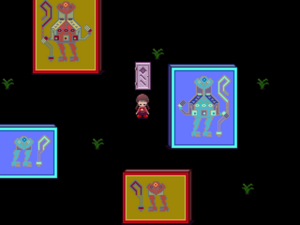
Mural World and its pink door
Pinko is a pejorative coined in America in 1925, originally to describe a person regarded as being sympathetic to communism. This could be referenced by the pink color of the door.
Some of the murals may be interpreted as depicting figures holding sickles.
Der Blaue Reiter
Der Blaue Reiter (The Blue Rider) was a group of artists from the Neue Künstlervereinigung München (N.K.V.M: New Artists' Association Munich. The group was founded by a number of Russian emigrants, including Wassily Kandinsky, Alexej von Jawlensky, Marianne von Werefkin, and native German artists, such as Franz Marc, August Macke and Gabriele Münter. Der Blaue Reiter was a movement lasting from 1911 to 1914, fundamental to Expressionism, along with Die Brücke which was founded in 1905.
Red Flag
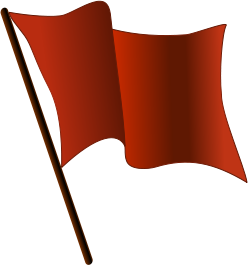
In politics, a red flag is a symbol of Socialism, or Communism, or sometimes left-wing politics in general.
7.3 ナチスによる弾圧
現代美術、特に19世紀半ば以降の芸術を理解せず毛嫌いしたナチスは、それらを「頽廃芸術」であると一方的にみなし、美術館などから作品を没収し芸術家に制作を禁じるなどして強力に弾圧した。ドイツ表現主義の作品もそのやり玉にあげられ、青騎士に属していた芸術家たちも例外ではなかった。
Red flag
Contemporary art and especially the Nazis that understood and had an instinctive dislike of the art on and after the middle of the 19th century oppressed powerfully by considering that they are "degenerate art" on a target on the other hand, confiscating a work from an art museum etc., and forbidding an artist work.
Neither the works of the German Expressionism nor the artists of those whom it made a victim of and that belonged to the blue knight were exceptions.
1.3.1 赤・黒2色旗
※Flag of the NSDAP is also one of the "red flags".
Petroglyph

Petroglyphs on rocks at Orongo. Make-make at base and two birdmen higher up
Petroglyph
The Birdman cult was suppressed by Christian missionaries in the 1860s.
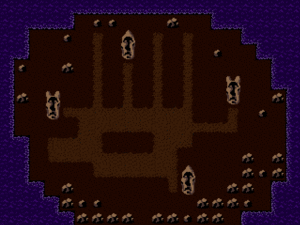
FCworld Moai(Easter Island)
←Not Mural World(FC World)
The origin of the cult and the time thereof are uncertain, as it is unknown whether the cult replaced the preceding Moai-based religion or had co-existed with it. Katherine Routledge was, however, able to collect the names of 86 Tangata manu.
Birdman
Rongorongo text X of the rongorongo corpus, known as the (New York) Birdman, is one of two dozen surviving rongorongo texts.
Rongorongo is a system of glyphs discovered in the 19th century on Easter Island that appears to be writing or proto-writing system.
The Tangata manu (bird-man), was the winner of a traditional competition on Rapa Nui (Easter Island). The ritual was an annual competition to collect the first Sooty Tern (manu tara) egg of the season from the islet of Motu Nui, swim back to Rapa Nui and climb the sea cliff of Rano Kau to the clifftop village of Orongo.

TheSewers Drawing「Peach-colored“∞(Rongorongo046)” Pink"S(speed)" Light green"UFO(Flying saucer)"」

Rongorongo046 The SewersDrawing
Peach-colored
“∞(Rongorongo046)”
- ⇒Vandalism
Pink"S(speed)"⇒tagging
Light green
"UFO"(Flyingsaucer)"
- ⇒Graffiti
